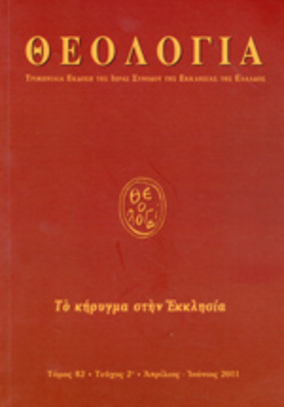Holiness and otherness : from holiness as an ethical concept to holiness as an hypostatic concept
Part of : Θεολογία : τριμηνιαία έκδοση της Ιεράς Συνόδου της Εκκλησίας της Ελλάδος ; Vol.81, No.1, 2010, pages 77-98
Issue:
Pages:
77-98
Abstract:
Biblical faith and even more so the Christian Church call and experience God as a personal and Holy Being par excellence. This biblical fact inspires the author to research the anthropological implications of the given theme. Man is created “ in the image of the holy God”. Is there any correlation, except formal, between the statement “be holy, because I am holy” and that which we call person and otherness? Could somebody who enters into communion with God become unique and special seeing that God is really the One who is fully and radically special (ganz andere), i.e. something “com pletely other”? As far as theology and the experience of the Church is concerned each man may be considered as distinct and unrepeatable, but this is only applicable to one who reaches out from the anonymity of an individual towards the uniqueness of a person. All this occurs through interpersonal communion, through communio sanctorum. Church tradition states that each saint is special and unrepeatable and this is owing to the special and unrepeatable relationship which he has established with the Special and the Unrepeatable Holy One within the liturgical experience of the Church. The notion of holiness in itself contains a personalistic and an ethical meaning, and these are both emphasized in biblical tradition, although the former carries more weight than the latter.
Subject:
Subject (LC):




